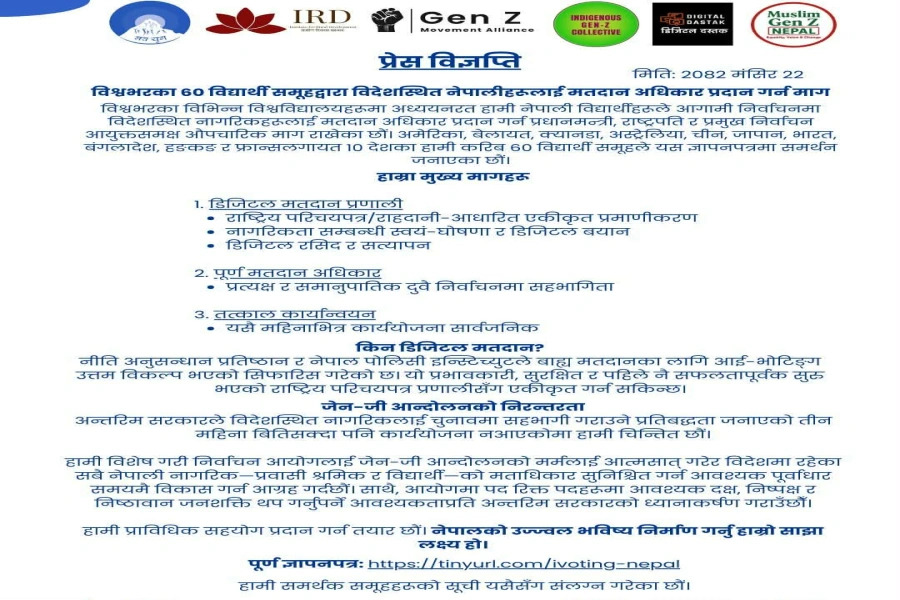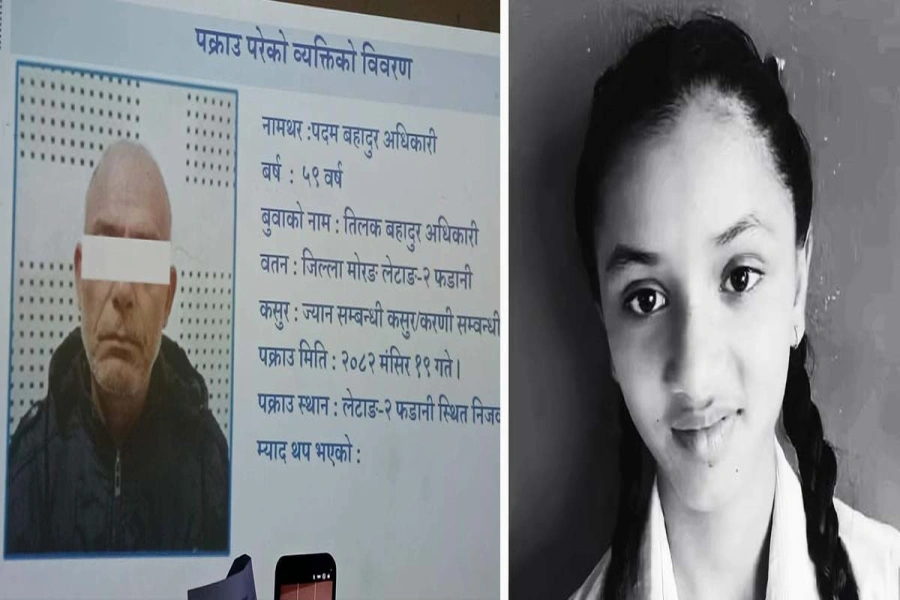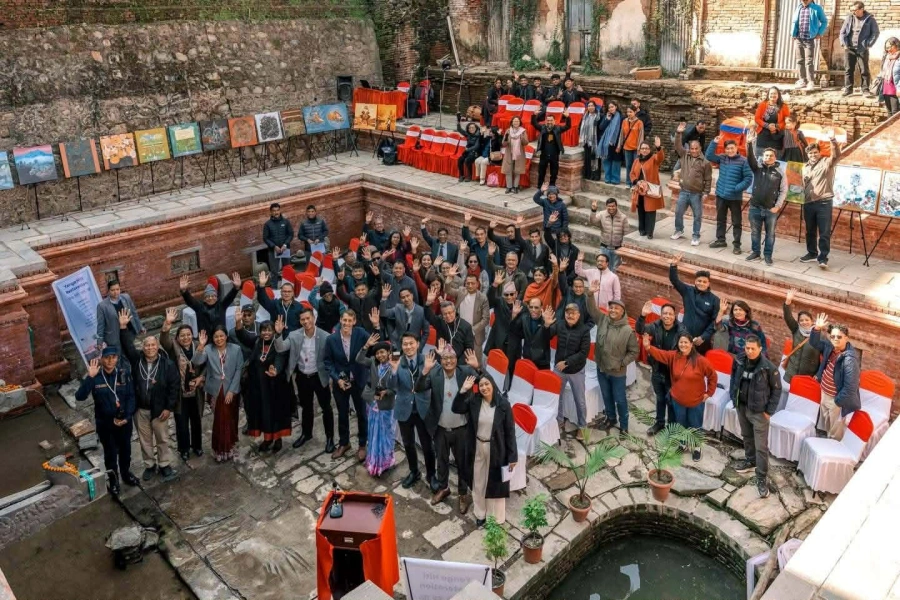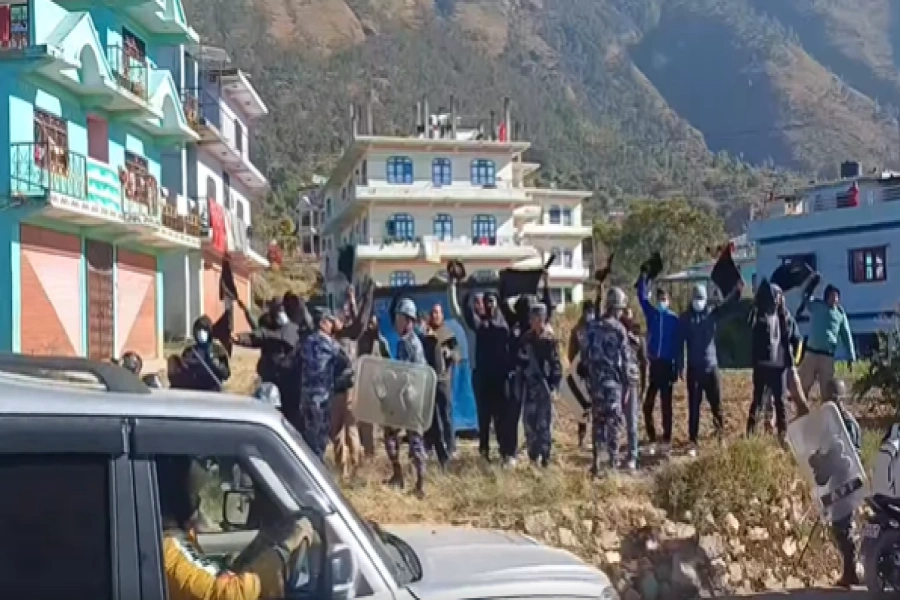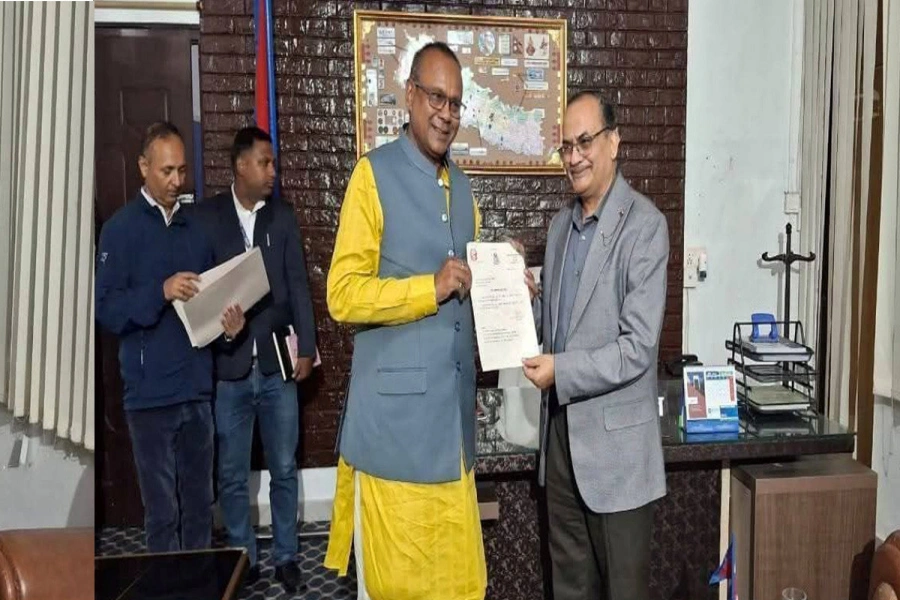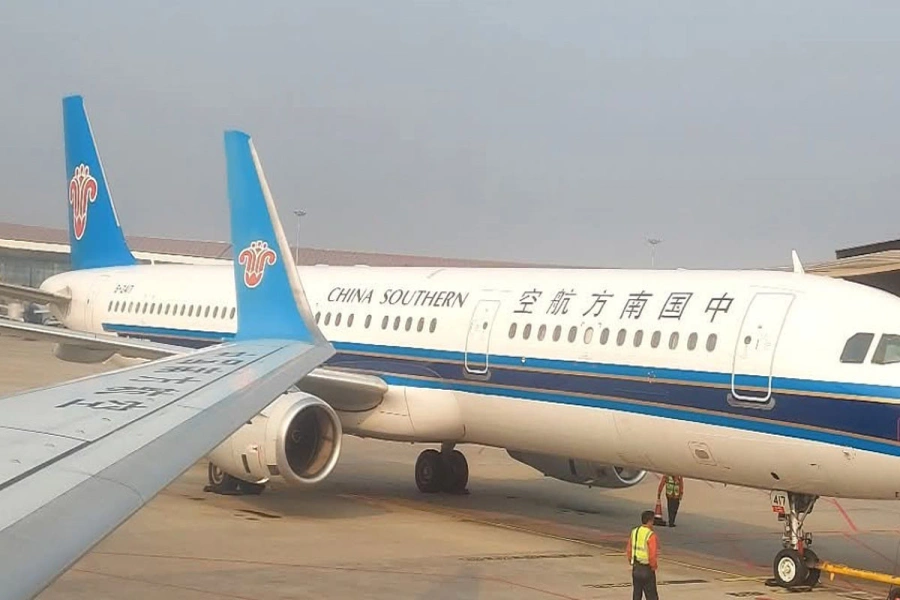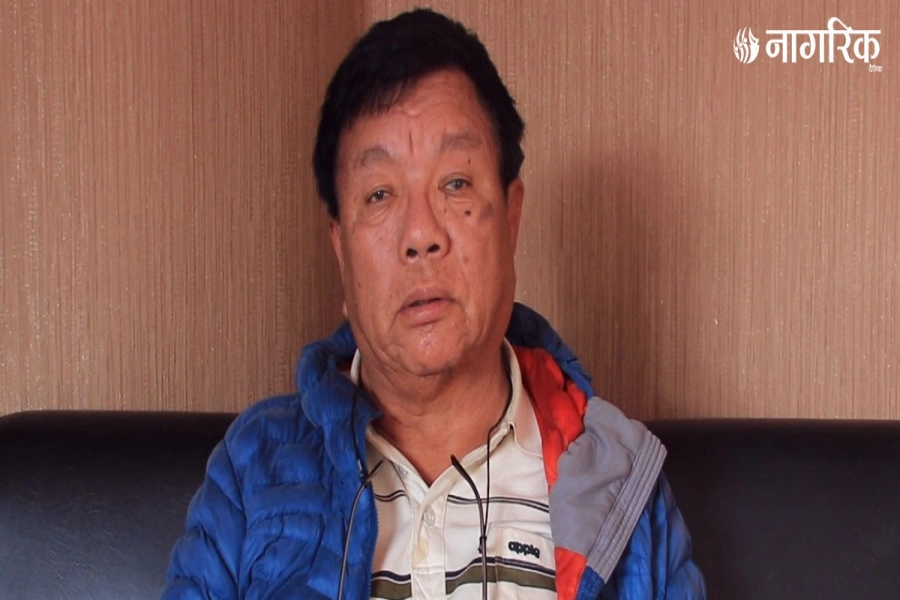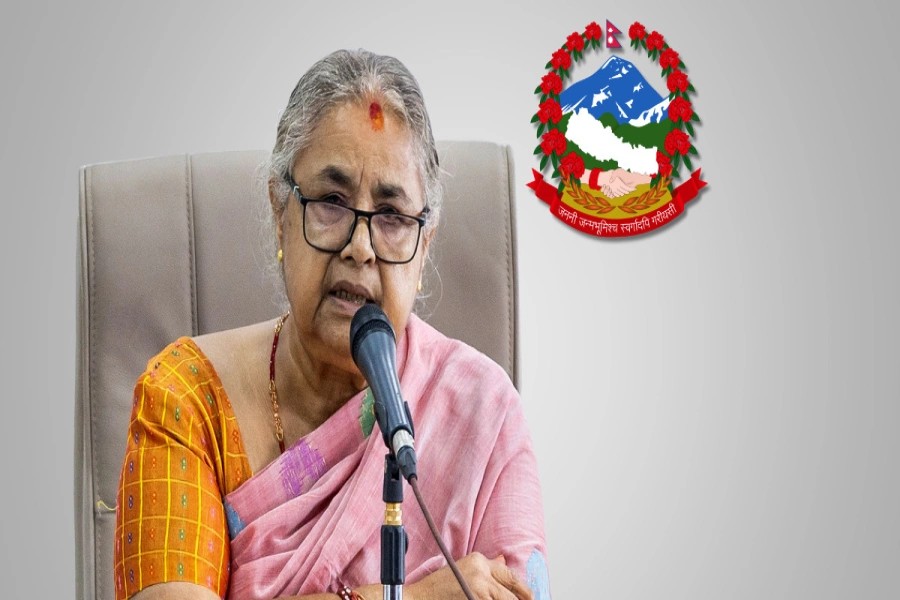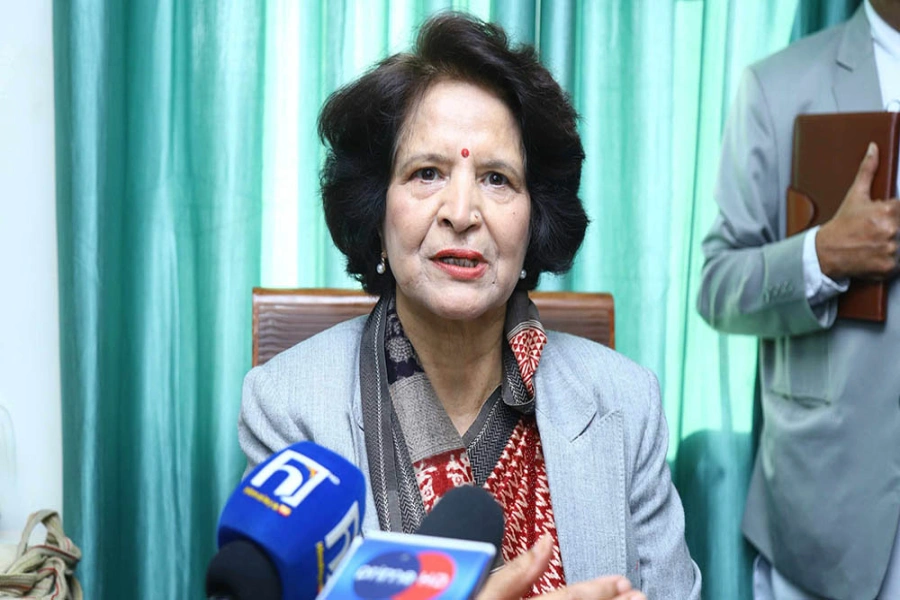CHITWAN, Sept 24: Wild buffaloes translocated to Chitwan National Park (CNP) from Koshi Tappu Wildlife Reserve few months ago have been hard hit by last month’s floods. Electric fences were put to cover 30 hectors of land at Padampur area of the national park to keep those animals. 12 buffaloes from Koshi Tappu and three were brought from the zoo and kept inside the enclosure. The three buffalos brought from the zoo died before the floods. And two more died after the floods. Park authorities say that the surviving buffaloes are also suffering from some illness.
Authorities say that the remaining 10 buffalos are in poor health as they have been badly bitten by leeches and other insects. They are suffering from stomach related ailments and officials are not sure if they will be able to recover.
“We are very nervous about it. Round warm and other diseases have made them weak. We are providing medical treatment to them but we are not sure if we can save them,” said Nurendra Aryal, information officer at the park. “They look too fragile even though we have been doing our best to help them overcome the ailments,” he added.
Death of five buffaloes has made the conservation officials less assured about the recovery of the rest. Their medical efforts have faced serious setbacks by the floods and the filth it left behind, they say. “They have lost weight and look gaunt. Their health condition is deteriorating despite our efforts,” stated Ram Chandra Kandel, Chief Conservation Officer at the park. “Before the flood, they were robust. Everything was okay,” he added.
Population of wild buffaloes increases to 441 in Koshi Tappu

Kandel informed to Republica that the three buffalos brought from the zoo had died due to some other reason. But the remaining twelve buffaloes were in pretty good health before the floods. Even after the death of the two more following the flood in mid August, others health was normal, he said. “They were grazing in group and showing very natural behavior. It was not hard to figure out that they were having good time as usual,” narrated Kandel. “However in the aftermath of floods that saw incessant rainfall in Chitwan, things got worse,” he added.
Rains had wreaked havoc in Chitwan on 11 and 12 August. There was almost regular rain even earlier. On 13 and 14 August floods had devastated several parts of the region. National park infrastructures and the wildlife were also hard hit. Even visitors including dozens of foreigners were evacuated from the Sauraha area.
“Rapti and other rivers got swollen and there was water everywhere. Floods of such scale are unusual in the region. Though the floods receded from the park area, it affected its whole ecosystem,” said Kandel.
Enclosing fences around the buffaloes’ habitat were badly damaged by the floods. The whole stretch of the enclosure was inundated by the floods. Though the flood receded later, it made the land damp and left behind a lot of leeches.
“It was very sad to lose two buffalos after the flood. But we were not expecting that the remaining buffaloes would be affected so much. During regular inspection, the buffalos were doing well in the immediate aftermath of the flood, but now we see that they have lost weight and turned skinny. This is a serious problem,” Kandel elaborated. He further added that the stool test performed on the buffalos showed that they are suffering from several types of parasitic attacks.
The buffaloes have been suffering from serious health conditions since the last two weeks. Because of the fragile health, they are finding it hard to move around. Their throat is swollen and wounds on their legs and other parts of the body are visible. As part of park’s effort to save the buffaloes, they are now being fed with special fodder as recommended by experts.
“We are giving them special fodder and grass to aid their recovery. Along with that veterinary doctors are providing medical treatment,” Kandel stated.
The buffaloes were brought to the park despite protests from locals of Koshi Tappu. They had argued that the buffaloes are happy and healthy in the buffer zone of Koshi Tapu. After rounds of discussion with the locals, they were finally taken into confidence. Park officials informed that the migration was done at a cost of Rs 9 million.




